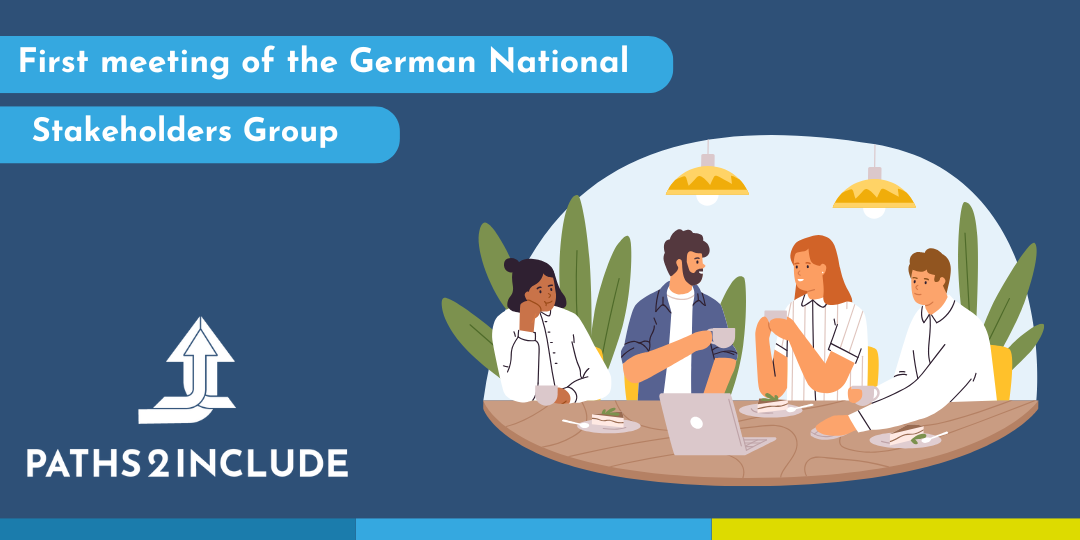On the 26th of September, the team from the Leibniz University Hannover (LUH) organised a meeting with the German National Stakeholders Group (NSG), the first of a series of meetings aiming at sharing updates, collecting stakeholders’ feedback and creating synergies. The German NSG is composed of representatives from the Expert Council on Integration and Migration (Sachverständigenrat für Integration und Migration), the HR Managers’ Association (Bundesverband der Personalmanager), the Association of Binational Families and Partnerships (Verband binationaler Familien und Partnerschaften), the Federal Anti-discrimination Agency (Antidiskriminierungsstelle des Bundes) and the Department of Economy, Transport and Education of the Regional Council of Hannover, (Region Hannover Dezernat Wirtschaft, Verkehr und Bildung).
This first meeting served to inform stakeholders’ representatives about the general aim of the PATHS2INCLUDE project and the work conducted by the team of researchers at LUH who are currently developing a factorial survey experiment to investigate labour market disadvantages based on gender, ethnicity, and care responsibilities. As a part of the factorial survey experiment, recruiters and HR specialists will be presented with various descriptions of fictional job applicants and asked to evaluate the likelihood of hiring these candidates within their respective companies. The NSG had the opportunity to evaluate the factorial survey experiment and its applicability in the German context.
The research project in general, and the factorial survey experiment in particular, were evaluated as interesting and necessary. Participants expressed a strong interest in the practical aspects of the results, especially those that could be implemented by organisations and policymakers to promote inclusive hiring. Additionally, participants emphasised the significance of the follow-up qualitative survey, which could help identify new trends in inclusive hiring and innovative solutions that could serve as benchmarks.

